1st edition 2014, January
Best Wishes for 2014

Dear ABLCC members,
Dear Partners,
Dear friends,
At the beginning of 2013, we wished you a prosperous year filled with joy and fruitful business activities. We very much hope these wishes materialized during the past year. At the Chamber, we are pleased to be able to look back on a year that brought us numerous memorable events during which we were able to join forces with you in advancing Arab-Belgian-Luxembourg trade and investment relations. For this, we thank you.
Important work remains to be done, and also in 2014, the Chamber is keen to provide high quality services to its members in Belgium, Luxembourg and the Arab world. At the beginning of the New Year, we are therefore pleased to announce the birth of a new website, www.ablcc.org. Besides providing you with in-depth information on our services and trade and investment relations with the Arab world, the new ABLCC web site also accords special attention to the members of the Chamber.
Thanks to easy navigable lists of ABLCC members organized according to sector of activity, our numerous visitors will now be able to quickly retrieve the wide range of activities offered by our member companies. We invite ABLCC members to make unlimited use of this important business tool and send all brochures, advertisements, news, photo’s, online video's, texts and links to This email address is being protected from spambots. You need JavaScript enabled to view it. for instant and free of charge publication.*
Wishing you a prosperous year and hoping to be able to welcome you to the numerous events we have planned for 2014, we remain at your entire disposal for all your requests and suggestions, according them priority treatment.
* Take a look at the Membership section of our website for technical requirements. Please contact us via This email address is being protected from spambots. You need JavaScript enabled to view it. if you would like to include your company in a different category or change contact details. Several companies are included in multiple categories.
Most sincerely,
| Johan Beerlandt Chairman |
Qaisar Hijazin Secretary-General |
New Members of the Chamber
Regus
Brussels Airport Pegasus, Pegasuslaan 5, 1831 Diegem - Belgium
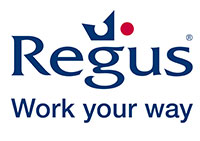
Regus Business Centres offer a global network of fully equipped offices, virtual offices, meeting rooms and a la carte services. Available immediately to hour, day, month or year. Thus, regardless of the time and place where you want to work, Regus can provide you with flexible solutions tailored to your needs
Our products and services allow our customers to concentrate 100% on their own core business, and use their talent to be best effect. Be they the largest global corporate or an entrepreneur with an idea, we help them be more flexible, more cost-effective and more agile- and better able to face the unexpected challenges of business in the 21st Century.
What we offer : Offices, virtual offices, meeting rooms. Video conferences, business lounges, business world, workspace disaster recovery. Our locations in the Middle East are located in : Bahrain, Israel, Jordan, Kuwait, Lebanon, Oman, Qatar, Saudi Arabia, Abu Dhabi, Sharjah, Dubai, Morocco, Tunisia Algeria And Egypt.
For any Regus in the world, you can contact :
Contact: Mr. Maarten Digneffe (General Manager)
Tel.: +32 2 709 2079 - Fax: +32 2 709 2222
E-mail:This email address is being protected from spambots. You need JavaScript enabled to view it. - Website:www.regus.be
Trans Continental Logistics
Klein Zuidland, 2030 Antwerpen - Belgium

TCL has the knowledge and resources to answer the complex needs of modern supply chains.
Based in the port of Antwerp, conveniently located in the center of the European market, TCL provides resources and the expertise in warehousing, inventory management, European distribution, international freight forwarding, customs brokerage and road haulage.
TCL offers customers a true "one stop shopping" solution.
A global network of agents provide a local service for your global shipments. The wide variety of products shipped through this network guarantees the best service at the best possible rates for your Import & Export shipments.
We maintain a quality management system in compliance with the ISO 9001:2008 standard, certified by BSI and are also AEO certified since 2009. Same for Transport Th. Wouters.
Our Services:
- Warehousing & Logistics
- Freight forwarding
- Road transportation
Contact: Mr. Luc Jonckers (Business Development Manager)
Tel.: +32 (0)3/ 541.69.70
E-mail:This email address is being protected from spambots. You need JavaScript enabled to view it. – Website:www.tcl.be
News from Our Members
Would your company also like to share its business news with the ever growing ABLCC-readership, currently comprising over 1500 companies and officials based in Belgium, Luxembourg and the Arab world? Don’t hesitate to let us know! Send an e-mail to This email address is being protected from spambots. You need JavaScript enabled to view it.
Port of Ghent stands firm in 2013 owing to dry bulk and ro/ro

Ghent port registered a total waterborne cargo traffic of 48.2 million tonnes in 2013, which is 2.6% less than in 2012. Its seaborne cargo traffic did better than the traffic by inland navigation. Consequently, it is the classic sectors with lots of added value and jobs that relatively stand their ground or are improving. Ghent sees its position as a bulk port reconfirmed and is at this moment the biggest dry bulk port of the country.
In its 2013 seaborne cargo traffic, Ghent saw an increase of mainly crude minerals and building materials (sand), of fertilizers and of ores. Agricultural products (cereals), chemicals and food products experienced a drop.
Ghent sees its position of dry bulk port reconfirmed. Even more so, Ghent is at this moment the biggest dry bulk port of the country. In seagoing navigation as divided according to the type of cargo, dry bulk takes up 16.4 million tonnes (63%). Also striking: ro/ro traffic increases by 16% to 2 million tonnes.
Consequently, it is the classic sectors with the classic businesses creating lots of added value and jobs that relatively stand firm or are improving.
Read the entire press release at www.portofghent.be
RAK Free Trade Zone wins prestigious EPDA award for environmental practices
 In recognition of its innovative environmental protection initiatives, the Ras Al Khaimah Free Trade Zone (RAK FTZ) has received the prestigious Environment Protection and Development Authority (EPDA) award for the Best Environmental Practices in Ras Al Khaimah.
In recognition of its innovative environmental protection initiatives, the Ras Al Khaimah Free Trade Zone (RAK FTZ) has received the prestigious Environment Protection and Development Authority (EPDA) award for the Best Environmental Practices in Ras Al Khaimah.
“Environmental protection is a top priority at RAK FTZ, and it gives us immense pleasure to receive the EPDA award,” said Peter Fort, Chief Executive Officer of the RAK FTZ. “We are continuously looking at ways to curb the environmental impact of our processes. This recognition of our dedication towards environmental protection encourages us to continue on our commitment.”
The award was handed over during a ceremony at the Ras Al Khaimah Chamber of Commerce on 31 December 2013. With the RAK FTZ’s regular social and environmental initiatives, including its EHS projects, Clean-Up UAE campaign, Healthy Employee Lifestyle Programme (HELP), numerous blood donation campaigns, support to cancer research in the UAE and several sports and educational programmes within the country, the organisation is known for its Corporate Social Responsibility (CSR).
More information: www.rakftz.com
Economic News
Mena region to see record level of IPO activity in 2014
 Initial public offering (IPO) activity in 2014 is expected to touch a record level on the bullish sentiment witnessed in the last quarter of 2013 in the Middle East and North Africa (Mena), according to an industry specialist.
Initial public offering (IPO) activity in 2014 is expected to touch a record level on the bullish sentiment witnessed in the last quarter of 2013 in the Middle East and North Africa (Mena), according to an industry specialist.
The UAE ranked top in terms of IPO issuance during the fourth quarter of 2013 in the region. Dubai Financial Market benchmark index recorded more than 100 per cent jump in 2013 compared to 2012 while capitalisation also increased by more than 40 per cent during the same period.
The largest IPO was from the UAE with Damac Real Estate Development listing on the London Stock Exchange and raising $348 million in a global depository receipt (GDR) offering. Two other IPOs from the UAE were also in the UK, with two in Oman and one each in Saudi Arabia, Morocco and Tunisia.
Companies in Mena region value innovation
 Data for the ‘Innovation in the Mena’ poll was collected online from November 18 to December 30, last year, with 6,268 respondents from UAE, KSA, Kuwait, Qatar, Oman, Bahrain, Lebanon, Syria, Jordan, Algeria, Egypt, Morocco and Tunisia.
Data for the ‘Innovation in the Mena’ poll was collected online from November 18 to December 30, last year, with 6,268 respondents from UAE, KSA, Kuwait, Qatar, Oman, Bahrain, Lebanon, Syria, Jordan, Algeria, Egypt, Morocco and Tunisia.
Seven out of 10 (69.4 percent) respondents said that their companies keep up to date with other organisations in their field and adopt best practices. The majority (82.9 percent) also said that their companies employ a long-term innovation strategy rather than a short-term one, which, according to 63.8 percent of respondents, has led to their companies’ innovation performance surpassing that of other firms in their industry. 61.8 percent also say that innovation has led to improved financial performance.
Gulf
Four GCC countries to introduce common currency
Four Gulf Cooperation Council (GCC) countries will announce the introduction of a common currency by the end of December, a Bahraini daily reported on Sunday.The common currency to be announced by Bahrain, Kuwait, Qatar and Saudi Arabia will be pegged to the dollar, a source told Akhbar Al Khaleej.
The GCC countries have been discussing a currency union similar to the Eurozone for more than 15 years.
Bahrain tops index of economic freedom
 Bahrain remains the Middle East and North Africa (Mena) region's most economically free country, according to the annual Index of Economic Freedom published by The Heritage Foundation and the Wall Street Journal.
Bahrain remains the Middle East and North Africa (Mena) region's most economically free country, according to the annual Index of Economic Freedom published by The Heritage Foundation and the Wall Street Journal.
Overall, the kingdom is ranked 13th out of 178 economies worldwide, between the US and the UK which rank 12th and 14th respectively and is the only Mena country to rank in the top 20. In the 20-year history of the index, Bahrain has consistently achieved a score greater than 70, well above the world average. The kingdom's 2014 economic freedom score is 75.1.
The report highlights that the kingdom's "transition to greater openness and diversification is based on foundations of economic freedom," and that Bahrain "continues to be a financial hub for dynamic economic activity, with high levels of trade and investment bolstered by a competitive and efficient regulatory environment".
According to the report, Bahrain has improved its economic freedom score in a number of categories at an above-average rate since index grading began 20 years ago, particularly in the areas of financial freedom, investment freedom and labour freedom.
EU will have regular talks with Oman on economic issues
 The European Union is looking to establish a regular dialogue with Oman in certain economic and political areas of interest to the two sides, said Baroness Catherine Ashton, High Representative of the European Union (EU) for Foreign, Policy and Security Affairs, and Vice-President of the European Commission.
The European Union is looking to establish a regular dialogue with Oman in certain economic and political areas of interest to the two sides, said Baroness Catherine Ashton, High Representative of the European Union (EU) for Foreign, Policy and Security Affairs, and Vice-President of the European Commission.
Ashton was in Oman yesterday on a day-long visit.
Speaking to the Times of Oman, she said, "The visit to Oman was a good opportunity to discuss about setting up a regular dialogue. From now on, our officials will follow that through.
"Oman is an important partner for us, both individually and as a key member of the Gulf Cooperation Council (GCC). Oman also has long running ties with the European Union as well as member states." She added: "EU is keen on strengthening the partnership."
Referring to the focus of the upcoming EU-GCC ministerial meeting in Europe in mid-2014, Ashton said, "The ministerial meeting will talk a wide range of issues including economic cooperation and current events that affect economies.
New Airport in Doha to open doors mid-2014

The new Hamad International Airport (HIA) in Doha is expected to open in a phased manner by mid-year 2014, a senior official has said.
The Passenger Terminal will have an internal area of 600,000 sq m on opening day. The terminal will initially have three concourses and 33 contact gates. It will increase to five concourses and 65 contact gates, including eight for the A380 in the final build-out. The terminal also includes 16 lounges for various categories of passengers, 28 art installations by local, regional and international artists, more than 100 F&B and retail outlets, a transit hotel, a swimming pool, a luxury spa and squash courts.
The airport will also have a four-storey catering facility, one of the largest in the world with a capacity to produce 90,000 meals per day.
HIA and the planned Airport City span 29 sq km. More than 1,000 architects, designers, engineering consultants, and project managers worked on the project, through more than 200 local, regional and international contractors and service contracts.
Need for unified air traffic control in the Gulf
 There is a need for a unified air traffic management system to monitor and operate the very congested airspace in the Middle East region, Akbar al-Baker, CEO of Qatar Airways and member of the Steering Committee, New Doha International Airport Project, said yesterday.
There is a need for a unified air traffic management system to monitor and operate the very congested airspace in the Middle East region, Akbar al-Baker, CEO of Qatar Airways and member of the Steering Committee, New Doha International Airport Project, said yesterday.
He was speaking at a press conference to announce the “phased opening by mid-year 2014” of the new Hamad International Airport.
When he was asked whether the new airports opening up in the GCC region would add to the congestion of the airspace, al-Baker agreed but also said the new airports also indicated the growth of the world’s top three airlines which have their headquarters in the GCC.
“New airports will facilitate the growth of the three main airlines that are growing very rapidly in the region. Yes, it is correct that there will be congestion in the way the airspace is managed,” he said.
Al-Baker called for a unified system modelled after a European body called Eurocontrol. “There will be a time, in our opinion, jointly there will have to be a single air traffic control management system, very similar to the Eurocontrol to monitor and operate a very congested airspace,” he said.
QE the best performing Arab bourse in post-financial crisis era
 Qatari bourse posted strongest recovery after the Lehman collapse and the consequent global financial crisis. At the close of 2013, Qatar Exchange (QE) posted strongest recovery since March 2009 among Arab stock markets.
Qatari bourse posted strongest recovery after the Lehman collapse and the consequent global financial crisis. At the close of 2013, Qatar Exchange (QE) posted strongest recovery since March 2009 among Arab stock markets.
During the year 2013, Qatari bourse’s main benchmark QE Index rose by 24.17 percent, while the QE Al Rayyan Islamic Index rose by 22 percent. Trading activities on the QE witnessed a rise in market capitalization, traded value and number of transactions executed compared to a slight decline in the number of shares traded.
Qatar Exchange has ranked fifth among the best performing Arab Stock markets during the year 2013, recording an increase of 24.17 percent, while the Dubai Financial Market was ranked first with an increase of 107.69 percent. The Abu Dhabi Securities came Second with an increase of 63.08 percent.
Foreign Direct Investment jumps by 200% between 2007 and 2013 in the UAE
 The UAE is expected to attract foreign direct investment (FDI) of $14.4 billion in 2014, 20 per cent higher than 2013, according to a top government official.
The UAE is expected to attract foreign direct investment (FDI) of $14.4 billion in 2014, 20 per cent higher than 2013, according to a top government official.
Last year, the country also recorded a 20 per cent year-on-year growth in FDIs that reached $12 billion, Abdulla Al Saleh, Undersecretary, UAE Ministry of Economy, Foreign Trade Sector, told reporters at a news conference in Dubai on Thursday.
“In 2013, the UAE was able to attract three times more FDIs than expected,” Al Saleh said, adding that increased government spending and a significant resurgence in tourism, transport and trade have contributed to this upswing.
He mentioned that FDI jumped by 200 per cent from $4 billion in 2007 to $12 billion in 2013. The country is the third most attractive country in West Asia for FDIs, he said quoting UNCTAD figures.
Levant
Iraq says pipeline to Jordan, Egypt open for investment
Iraq had denied reports that it would fund a USD-multi-billion project to construct an oil pipeline to Jordan and Egypt, saying the project would be financed by the executing companies on an investment basis, an Iraqi news agency reported on Sunday.
The 1,680-kilometre double pipeline will pump one million bpd of crude and nearly 258 million cubic feet of natural gas from Basra on the Gulf to Jordan’s Aqaba Port.
In September, the US Wall Street Journal said Iraq has shortlisted 12 international companies to build the USD18-billion oil export pipeline.It said Lukoil of Russia, Mitsui of Japan, Larsen &Toubro and Go Gas of India, Italy’s Saipem and China National Petroleum Corp were among the shortlisted firms.
High hopes for Amman Stock Exchange in 2014
 2014 is excepted to be a promising year for the Amman Stock Exchange (ASE) as the growth seen last year is likely to gain momentum, according to the market chief.
2014 is excepted to be a promising year for the Amman Stock Exchange (ASE) as the growth seen last year is likely to gain momentum, according to the market chief.
Nader Azar, acting chief executive officer of the ASE, told The Jordan Times in a recent interview that the bourse is set for faster recovery to pre-global 2009 financial crisis levels after the price index closed 5.5 per cent higher in 2013.
“I’m very optimistic that the ASE performance will pick up this year, which will be more stable in terms of prices and trading volumes,” Azar said, stressing that the Kingdom’s stock market was attractive for non-Jordanian investors in 2013.
Trading at ASE reached around JD3 billion last year compared to JD2 billion the year before, Azar indicated.
Solidere shares benefit from positive political prospects in Lebanon
 Upbeat news about the potential formation of a new government pushed the Beirut Stock Exchange higher Tuesday on Solidere A and B shares gains of 7.87 percent and 6.18 percent, respectively. “The positive activity witnessed with regard to Solidere shares reflects the optimism of investors amid hopes of the formation of a new government soon,” said Yves Rahme, head of the equities unit at Byblos Bank.
Upbeat news about the potential formation of a new government pushed the Beirut Stock Exchange higher Tuesday on Solidere A and B shares gains of 7.87 percent and 6.18 percent, respectively. “The positive activity witnessed with regard to Solidere shares reflects the optimism of investors amid hopes of the formation of a new government soon,” said Yves Rahme, head of the equities unit at Byblos Bank.
This new progress had a beneficial impact on Solidere shares, “which are usually the most affected by any positive or negative political events,” Rahme said.
North Africa and Maghreb
Egypt focuses on small enterprises
 Last week, the Social Fund for Development's (SFD) board of directors, headed by interim Prime Minister Hazem Al-Beblawi, approved the organisation's budget for 2014, estimated at LE3 billion.
Last week, the Social Fund for Development's (SFD) board of directors, headed by interim Prime Minister Hazem Al-Beblawi, approved the organisation's budget for 2014, estimated at LE3 billion.
According to a statement from the cabinet, this budget will be directed at financing the development of small and micro-sized enterprises. A portion will also be directed at funding labour-intensive projects.
Azmi Mustafa, the former head of the SFD's Technical Department, told Al-Ahram Weekly that the new budget was larger than last year's, which came in at LE2.2 billion.
Europac Group launches cardboard plant project in Tanger
 The Europac Group acquired land in the Moroccan city of Tangier for the construction of a new integrated corrugated cardboard plant. The new plant is to be operational in the first half of 2015.
The Europac Group acquired land in the Moroccan city of Tangier for the construction of a new integrated corrugated cardboard plant. The new plant is to be operational in the first half of 2015.
The first phase of this project began in the first quarter of 2013, with the opening of a center dedicated to the assembly of heavy-duty enclosures for the automotive sector. At this early stage of the project converting lines were also installed for the processing of card board boxes.
In total, the estimated investment in the project is EUR 30 million to be invested in different stages, including a third and final phase that involves the installation of two new converting lines to a total of seven in the new plant. It is estimated that the project will enable the creation of a significant number of direct jobs.
Libyan Airlines returns to Benghazi

The headquarters of state-owned airline Libyan Airlines is to return to Benghazi, the airlines’ board of directors decided yesterday.The widely-anticipated decision that the airline should return to where it was founded 50 years ago, was announced following a special meeting at Benghazi’s Tibesti Hotel during te company’s golden jubilee celebrations.
Libya announces new PPP draft law
A workshop on Public Private Partnerships (PPP) took place today at the Corinthia hotel, Tripoli. The workshop, during which Libya’s new PPP draft law was revealed, was entitled “Transition to a PPP model” and was organised by the Ministry of Housing and Utilities in association with international legal firm, Clyde & Co.
Minister Sherief said that he hoped that the initiative and workshop would come up with innovative ideas and a form of a PPP law for the public and private sectors to work together in all sectors. This included both the local and international private sector, the Minister added, to form effective partnerships that would help in building the Libyan state.
Nokia to build-up Libya’s mobile broadband infrastructure
 Nokia Solutions and Networks (NSN) opened a new office in Tripoli on Wednesday, committing itself to improving mobile broadband infrastructure in the country. The development is an important move towards the modernisation of communications in Libya, to better enable the use of smart phone devices, already widely available, and improve internet access options. Speaking at the inauguration of the the new office, Head of Middle East and Africa for NSN, Igor Leprince, said the opening was just the first step in delivering world-class mobile broadband to Libya.
Nokia Solutions and Networks (NSN) opened a new office in Tripoli on Wednesday, committing itself to improving mobile broadband infrastructure in the country. The development is an important move towards the modernisation of communications in Libya, to better enable the use of smart phone devices, already widely available, and improve internet access options. Speaking at the inauguration of the the new office, Head of Middle East and Africa for NSN, Igor Leprince, said the opening was just the first step in delivering world-class mobile broadband to Libya.
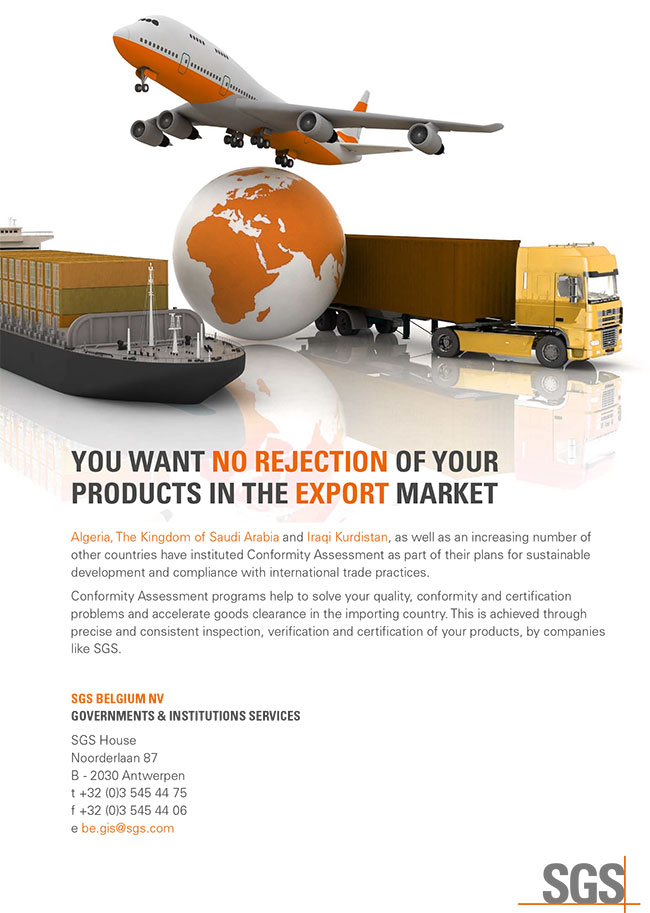
آفاق الاقتصاد البلجيكي عام 2014
تدل المؤشرات الاقتصادية على أن الانتعاش الاقتصادي العالمي سيستمر خلال عام 2014، ويرى المحللون الاقتصاديون في معهد الأبحاث الاقتصادية والاجتماعية في بلجيكا بناء على هذه المؤشرات أن الطلب العالمي سيدعم النشاطات الاقتصادية في بلجيكا، غير أن الطلب الداخلي ما يزال ضعيفا ومن المتوقع أن يتحسن خلال عام 2014 وأن تتطور آلية نمو اقتصادي مستقل بشكل تدريجي، وسيبلغ النمو الاقتصادي 1.4%، لكن تطور سوق العمل سيبقى ضعيفا بحيث لن يتمكن من الحد من ارتفاع البطالة.
تحسن مؤشرات الاقتصاد العالمي:
يستمر الانتعاش الاقتصادي العالمي، حيث ازداد الإنتاج الصناعي العالمي في الفصل الثالث من عام 2013 بنسبة لم يحققها منذ بداية عام 2012، وتحققت هذه الزيادة في البلدان الناشئة والبلدان المتقدمة على حد سواء، وإن كانت الزيادة أكبر في المجموعة الأولى. وفي هذا السياق ازدادت المبادلات التجارية على الصعيد العالمي بشكل ملحوظ.
واستمر انتعاش النشاطات الاقتصادية في البلدان المتقدمة وإن اختلفت وتيرته حسب المنطقة. ففي الولايات المتحدة الأمريكية وبفضل ازدياد الطلب الداخلي بلغ النمو الاقتصادي في الفصل الثالث من العام الماضي 1.0% مقارنة بالفصل الثاني. أما في اليابان تباطأ النمو الاقتصادي بشكل كبير في الفصل الثالث مقارنة بالفصل الثاني بسبب ضعف نمو الطلب الداخلي، ومحصلة سلبية للتجارة الخارجية في النمو الاقتصادي الذي بقي إيجابيا وبلغ 0.3%.
وفي منطقة اليورو ازدادت النشاطات الاقتصادية للفصل الثاني على التوالي وبلغت نسبة النمو 0.1%، وقد كانت مساهمة التجارة الخارجية سلبية في النمو الاقتصادي بسبب تجاوز الواردات للصادرات خلال الفصل الثالث من عام 2013، بيننا ساهم الطلب الداخلي إيجابيا في النمو الاقتصادي. ومن الجدير بالذكر أن الأوضاع الاقتصادية تحسنت في بلدان جنوب أوروبا، فقد تخلصت اسبانيا من الركود الذي استمر لمدة سنتين، وتقلص تراجع النشاطات الاقتصادية في إيطاليا.
أما في البلدان الناشئة فقد تباطأ النمو الاقتصادي في البرازيل للمرة الأولى منذ عام 2009، بينما استفادت الصين من زيادة صادراتها بفضل انتعاش النشاط الاقتصادي على الصعيد العالمي، كما ساهمت زيادة الصادرات بتحسن النمو الاقتصادي في الهند أيضا.
ومن المفترض أن يتابع النمو الاقتصادي تحسنه خلال عام 2014 حيث تبين الكثير من المؤشرات الاقتصادية لمؤسسات البحوث الاقتصادية العالمية هذا الاتجاه في معظم مناطق العالم، بفضل عودة ثقة أرباب العمل والمستهلكين، وتراجع أعباء الديون السيادية، وغياب الضغوط التضخمية، إلى جانب توقع استقرار نسبي في أسعار النفط، وذلك بالرغم من استمرار وجود عدة عوامل تكبح النمو الاقتصادي مثل ارتفاع مستوى البطالة في منطقة اليورو، وبرامج تقليص العجز في الميزانيات في الدول الأوروبية وفي الولايات المتحدة الأمريكية.
استمرار الانتعاش في بلجيكا:
بعد أن عاد الانتعاش الاقتصادي في النصف الثاني من عام 2013 استمرت النشاطات الاقتصادية البلجيكية في النمو خلال الفصل الثالث من نفس العام وبوتيرة أعلى بشكل طفيف. وبلغت نسبة النمو 0.3% وهي أعلى نسبة سجلها الاقتصاد البلجيكي منذ بداية عام 2011. وسجلت كافة القطاعات الاقتصادية نموا في نشاطاتها، لكن الزيادة الملحوظة كانت في نشاطات القطاع الصناعي التي ازدادت للفصل الثاني على التوالي بعد أن استمر التراجع فيها مدة 3 سنوات تقريبا. غير أن البطالة ما تزال تتابع ارتفاعها حيث تجاوز عدد العاطلين عن العمل 600000 شخصا.
وبعد أن ازدادت الصادرات البلجيكية في الفصل الثاني من عام 2013 تابعت ازديادها في الفصل الثالث بنسبة 2.1% مقارنة بالفصل السابق كما ازدادت الواردات بنسبة 1.8% في الفصل الثالث مقارنة بالفصل الثاني من السنة المذكورةـ وقد ساهمت الصادرات بزيادة معدل النمو بنسبة 0.3% خلال الفصل الثالث. إلى جانب ذلك ازداد الطلب الداخلي (باستثناء تكوين المخزون) بنسبة 0.4% خلال الفصل المعني، وهو ما يشكل أعلى زيادة منذ سنتين. وازداد الاستهلاك الخاص بنسبة 0.5%، كما ازداد الاستثمار المحلي نسبة 0.8% مقارنة بالفصل الثاني وهو أول زيادة يسجلها منذ 3 سنوات تقريبا.
بالإضافة إلى ذلك عم جو من التفاؤل والثقة بين أرباب العمل سواء في القطاع الصناعي أو في قطاع الخدمات والشركات التجارية كما ازدادت الثقة لدى المستهلكين، حيث تجاوزت مؤشرات الثقة أعلى المستويات المسجلة منذ سنتين.
الانتعاش يتعزز عام 2014
تؤكد التطورات الأخيرة للنشاطات الاقتصادية ومناخ الأعمال السائد في بلجيكا أن النمو سيستمر بالانتعاش تدريجيا عام 2014، فعلى المدى القصير ستدعم التجارة الدولية النشاطات الاقتصادية لأن الأوضاع الاقتصادية في الولايات المتحدة وبعض الدول الأوروبية آخذة بالتحسن التدريجي. وفي هذا السياق وبافتراض أن تجميد الرواتب الحقيقية الذي فرضه الاتفاق بين أرباب العمل والنقابات لعامي 2013-14 سينعكس إيجابيا على القدرة التنافسية للشركات البلجيكية فإن الصادرات البلجيكية ستزداد بنسبة 5.3% عام 2014. كما من المتوقع أن يزداد الطلب الداخلي بالتدريج عام 2014 وأن يساهم بتحقيق نمو ديناميكي أكثر استقلالية، وستقوى ثقة أرباب العمل والمستهلكين وتنتعش سوق العمل، إلا أن النمو سيكون محدودا عام 2014.
وبالرغم من انخفاض معدل التضخم الذي سيبلغ 0.9% عام 2014، مع الأخذ بعين الاعتبار انخفاض الضريبة على القيمة المضافة على الطاقة الكهربائية من 21% إلى 6% اعتبارا من شهر نيسان / أبريل، فإن القوة الشرائية لن تتحسن إلا بشكل طفيف (+1.3%) بسبب تجميد الرواتب الحقيقية وتطور ضعيف في سوق العمل. ولن يزيد الاستهلاك الخاص بسبب التخوف من البطالة لذلك لن يتجاوز معدل الاستهلاك الخاص 1.3% أي أن الزيادة في الاستهلاك الخاص ستعادل الزيادة في القوة الشرائية، وسيبقى الادخار الخاص مستقرا. أما الطلب الداخلي فلن يزيد بسبب الجهود التي يجب بذلها في تقويم الأموال العامة من أجل تقليص العجز العام من 2.8% عام 2013 إلى 2.5% عام 2014.
وفيما يتعلق بالشركات ستبقى شروط الحصول على القروض صعبة خاصة للشركات الصغيرة والمتوسطة، ولذلك لن تزيد نسبة استثمارات الشركات عن 3.4% بعد أن شهدت انخفاضا قليلا عام 2013.
ومن المتوقع أن ينمو الناتج المحلي الإجمالي عام 2014 بنسبة 1.4%، وسيزيد الطلب الداخلي بنسبة 1.5% (باستثناء تكوين المخزون). وبفضل هذه الزيادة إلى جانب نمو النشاطات الاقتصادية وبالتالي نمو الصادرات ستزيد قيمة الواردات البلجيكية بنسبة 5.5% وستتجاوز قيمة الصادرات، وانطلاقا من ذلك ستكون مساهمة الصادرات الصافية في النمو سلبية لنسبة -0.1% عام 2014 بعد أن كانت إيجابية بشكل واضح عام 2013.
تحسن طفيف في سوق العمل عام 2014:
ظهرت في غضون الأشهر الأخيرة بوادر تحسن طفيف في سوق العمل، فمن جهة كان عدد الذين فقدوا وظائفهم في الفصل الثالث من عام 2013 أقل بكثير من أولئك في الفصلين الأول والثاني، ومن جهة أخرى أبدت الشركات الصناعية والشركات الخدمية مرارا رغبات أكبر في التوظيف خلال النصف الثاني من السنة المذكورة، علاوة على أن التوظيف المؤقت انتعش تدريجيا أيضا، وأخذ مؤشر العمالة بالارتفاع بعد أن استمر بالانخفاض لمدة عامين.
بناء على ذلك يمكن القول أن انتعاش النشاطات الاقتصادية المتوقع خلال عام 2014 سيترافق مع انتعاش في سوق العمل، غير أن التحسن سيكون طفيفا بسبب زيادة الإنتاجية الساعية وزيادة عدد ساعات العمل. حيث أن الإنتاجية الساعية لم ترتفع مقارنة بمستواها الذي كان سائدا قبل الأزمة الاقتصادية والمالية عام 2008، أما عدد ساعات العمل فما زال أقل بشكل ملحوظ من المستوى الذي كان سائدا آنذاك، لذلك من المتوقع أن يؤثر انتعاش النشاطات الاقتصادية على هذين الجانبين أولا، وفيما بعد سيؤثر إيجابيا على البطالة. وبناء على ذلك، فإنه بينما ستنمو النشاطات الاقتصادية بنسبة 1.14% عام 2014 فإن حجم العمل لن يزيد إلا بنسبة 0.7%، أما عدد الوظائف فسيزيد بتواضع أكثر وبنسبة 0.2% أي 9600 وحدة سنويا أي ما يعادل زيادة 27000 وظيفة في غضون عام 2014 (حجم العمل هو العدد الكلي للساعات التي يقوم بها الأشخاص الذين يمارسون عملا، أما عدد الوظائف فهو عدد الأشخاص الذين يشغلون عملا، ويمكن حسابه بقسمة حجم العمل على الفترة الوسطية للعمل).
قد تتأثر هذه التوقعات لعام 2014 وتتغير نتيجة العديد من العوامل مثل انخفاض سريع في شراء سندات الاحتياطي الفدرالي الأمريكي الذي قد يؤدي إلى خلل في الأسواق المالية، وتوقف المباحثات السياسية حول زيادة سقف الديون الأمريكية مما سيؤثر على الاقتصاد العالمي، وتقلص تدفق رؤوس الأموال إلى البلدان الناشئة مما يؤثر سلبيا على نموها، وزيادة معدل الفائدة في الدول المتقدمة الذي قد يقود إلى تعقيد تقويم الأموال العامة في البلدان الأكثر استدانة، وربما إلى كبح الطلب الداخلي. بالإضافة إلى أن العديد من البلدان الأوروبية ما تزال ترزح تحت وطأة الديون مما يهدد منطقة اليورو بعودة أزمة الديون السيادية وبالتالي سيتأثر النظام المصرفي العالمي، وإلى جانب ذلك قد تؤدي الضغوط والنزاعات إلى زعزعة في الأسواق النفطية.
ومن جهة أخرى قد تتأثر التوقعات إيجابيا إذا ما حقق النمو الاقتصادي الأمريكي معدلا أفضل، أو إذا زاد الطلب الداخلي في منطقة اليورو بفضل تم إيجاد فرص عمل بشكل أكثر.
* توقعات الاقتصاد البلجيكي (نسب مئوية للتطور مقارنة بالسنة السابقة)
| 2008 | 2009 | 2010 | 2011 | 2012 | 2013* | 2014* | |
| الناتج المحلي الإجمالي | 1.0 | 2.8- | 2.3 | 1.8 | 0.1- | 0.2 | 1.4 |
| الاستهلاك الخاص | 2.0 | 0.6 | 2.8 | 0.2 | 0.3- | 0.6 | 1.3 |
| الاستثمار - الشركات - الخاص - العام |
2.0 4.2 2.7- 0.3 |
8.4- 10.2- 8.6- 9.8 |
1.1- 3.2 3.6 2.1- |
4.1 7.3 3.2- 7.1 |
2.0- 2.1- 3.2- 2.4 |
2.4- 0.5- 3.7- 12.0- |
2.9 3.4 1.6 4.1 |
| الصادرات | 1.4 | 9.4- | 8.1 | 6.4 | 1.8 | 0.9 | 5.3 |
| الواردات | 2.7 | 8.8- | 7.5 | 6.9 | 1.3 | 0.3 | 5.5 |
| البطالة (نسبة العاطلين بين السكان الناشطين اقتصاديا) | 7.0 | 7.9 | 8.2 | 7.2 | 7.6 | 8.6 | 8.8 |
المبادلات التجارية بين بلجيكا والعالم العربي
بلغت قيمة الصادرات البلجيكية إلى البلاد العربية عام 2012 حوالي 9.8 مليار يورو مقابل 8.8 مليار عام 2011 أي بزيادة نسبتها 11.7%. أما فيما يتعلق بالواردات البلجيكية من البلاد العربية، فقد زادت قيمتها بنسبة 1.3% حيث ارتفعت من 8.7 مليار يورو عام 2011 إلى 8.8 مليار يورو عام 2012.
وتبين الإحصائيات المتوفرة عن المبادلات التجارية بين الطرفين خلال الأشهر العشر الأولى من عام 2013 أن الصادرات البلجيكية إلى البلاد العربية بلغت حوالي 8.9 مليار يورو مقابل 8.1 مليار خلال نفس الفترة من عام 2012 أي بزيادة نسبتها 9%. أما فيما يتعلق بالواردات البلجيكية من البلاد العربية، فقد تراجعت قيمتها بنسبة -3.6% حيث تراجعت من 7.5 مليار يورو خلال الأشهر العشر الأولى من عام 2013 إلى 7.2 مليار يورو خلال نفس الفترة من عام 2012.
قيمة المبادلات التجارية بين بلجيكا والعالم العربي (2011-2013)
( القيمة بآلاف اليورو)
| 2011 | 2012 | % التطور | 2012/10 | 2013/10 | % التطور | |
| الصادرات البلجيكية إلى البلاد العربية | 8.782.841,1 | 9.811.562,5 | 11.7 | 8.156.709,1 | 8.894.780,5 | 9 |
| الواردات البلجيكية من البلاد العربية | 8.731.675,0 | 8.847.148,1 | 1.3 | 7.517.781,2 | 7.247.944,0 | 3.6- |
Focus on the 2014 Belgian Economic Mission to Saudi Arabia and Oman

Belgian companies are currently gearing up for the Belgian Economic Mission to Saudi Arabia and Oman, which will take place from 14 until 21 March 2014. Who is better placed than Mr. Marc Bogaerts, Director General of the Belgian Foreign Trade Agency (BFTA), to explain our readers how the Economic Trade Mission can provide added value to their business.

Mr. Bogaerts, could you briefly outline the main responsibilities of your organization?
Bogaerts: "The Belgian Foreign Trade Agency is the result of a cooperation agreement signed between the federal government and the regional governments. In short, the Agency works for the three regional agencies for the promotion for Foreign Trade & Investment and for the Ministry of Foreign Affairs.
The Agency engages in specific tasks such as organizing, developing and disseminating information, preparing studies and documentation on foreign markets to the benefit of the regional services responsible for foreign trade etc…
Simply put, we try, in close collaboration with our colleagues from Flanders Investment & Trade (FIT), Brussels Invest and Export (BIE) and AWEX, to facilitate the export activities of our Belgian companies, in order to improve their export performance and profit. We publish studies and statistics and forward trade information to 23,000 companies that have been included in our exporters’ database. This trade information ranges from open tenders to interesting market information. Another important department of the BFTA is the service ‘Regulations’ and ‘Legislation’ offering exporting companies tailored advice on widely divergent topics. Finally, the BFTA also provides advice about international trade regulations and legislation to Belgian exporting companies."
A whopping 74% of the participants claimed that the trade missions helped to achieve their intended results. Even more impressive is that an average 52 % of the results obtained was attributed to the missions and an average 35 % of the results couldn’t be obtained without participation at a trade mission, according to some participants.
And let’s not forget about the missions.
Bogaerts: "Indeed. That is what we are best-known for, the coordination of the missions. We are very pleased that the princely missions are very successful. The past three years all records have been broken: we achieved the highest number of participants, the most business people, the highest amount of contracts being signed ..."
How do you explain this success?
Bogaerts: "A company participating in a trade mission is in reality mainly looking for one thing: higher profits. This can manifest itself through increased exports and more successful investments. In 2013, a student at the University of Ghent promoted with a study on the impact of trade missions. We were pleasantly surprised by the results."
Is it possible to measure the impact of the trade missions?
Bogaerts: "Definitely. Companies rarely tell us about their concrete results, they prefer to keep these for themselves. But we do notice in recent years more participants with a high degree of fidelity. This would not be the case if the missions did not create any added value."
I therefore refer to the study mentioned above. Mathematical models proved the existence of a link between Belgian export results and trade missions. But I attach more value to the survey of Belgian companies who participate. A whopping 74% of the participants claimed that the trade missions helped to achieve their intended results. Even more impressive is that an average 52 % of the results obtained was attributed to the missions and an average 35 % of the results couldn’t be obtained without participation in a trade mission, according to some participants.
What characterizes our commercial relations with Saudi-Arabia and Oman?
Bogaerts: "In 2012, Saudi-Arabia occupied the 32th place on the list of the most important buyers of the Belgian export for goods. Chemical products are responsible for 31,5% of the total Belgian export to Saudi-Arabia. As for the services, Saudi-Arabia is the 31th most important costumer of Belgium. Communication has been the most important service with 36.9% of all rendered services. This tendency has been confirmed in the first six months of 2013. Also Oman is a very interesting partner for Belgium. The main sectors of interests in the Omani-Belgian relationship are chemical products and plastics, but opportunities exist in a wide array of sectors. The economic mission will provide excellent opportunities to optimize the commercial relations between both countries and Belgium."
What are the most important activities that take place during such missions?
Bogaerts: "Activities range from general information sessions with the entire delegation to very specific sectorial roundtables for a select group of companies and their local counterparts. We always try to have a well-balanced program. At the end of the mission, each participating company has a better understanding of the local market: the available opportunities, important things to keep in mind when doing business etc. If this is complemented with the right B2Bs and possibly with sector-related activities, the missions can really make a world of difference. Furthermore, the presence of the Princess and Ministers do open doors that would otherwise remain closed."
Will the mission to Saudi Arabia & Oman be presided over by HRH Princess Astrid?
Bogaerts: "His Majesty the King has decided to stay on as the Honorary President of the BFTA. It is therefore possible that he still will preside over economic missions in future. After his coronation, he asked his sister, HRH Princess Astrid, to represent him at the first economic missions. HRH Princess Astrid presided over the mission to Angola & South Africa and to India. We only received positive comments on how the Princess has taken the lead during those past missions. According to the previously cited study the presence of a member of the Royal Family is a key element to the success of the trade missions. And that will certainly be the case in Saudi Arabia, which as you know is a Kingdom too."
What can participants to the Saudi Arabia & Oman mission expect?
Bogaerts: "The mission will take place from 14th to 21st March 2014 and will primarily focus on Riyadh, Jeddah and Muscat. We have, in consultation with the regional agencies, defined some key sectors such as (sports) infrastructure, energy and clean technology, health and pharmaceuticals, logistics and port-related activities and, finally, services and banks. It is still too early to comment on the program (this interview took place in December, ed.), but the agenda is becoming well-packed. Both information sessions with key speakers and some promising seminars are as good as confirmed. We are also evaluating the possibilities concerning the Port of Duqm, a very interesting project in Oman. And of course, we will provide ample opportunities for networking."
How can one register for a mission?
Bogaerts: "Registrations takes place through the regional departments. Flemish companies should contact “FIT”, Brussels companies “Brussels Invest & Export” and Walloon companies “AWEX”. They help you out with specific information on how to register, what the participation cost of the mission might be and which compensations you might apply for. For every mission a travel agency is chosen to arrange the logistical aspects of the mission, including the booking of flights and hotels. These services lower the barrier for participation in the mission."
Our bags are packed!
More information:www.abh-ace.be
Contact: Mr. Wouter Decoster, Junior Economic Mission Coordinator
T: +32 2 206 35 74 – E:This email address is being protected from spambots. You need JavaScript enabled to view it.
Focus on Sudan
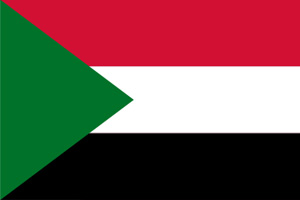
Sudan has been going through stormy weather for the past years, but a silver lining seems to be showing for the north-eastern African state, as the International Monetary Fund (IMF) has recently upgraded its projections for Sudan’s economic growth in 2013 compared to last April’s figures. The World Economic Outlook (WEO) released on 8 October 2013 by the IMF also showed Sudan’s economy is growing by 3.9% this year compared to the previous estimate of 1.2%. This year will be the first in which Sudan achieves a positive GDP growth since the secession of the South in July 2011, with the new nation taking 75% of the oil reserves that existed prior to partition.
In past decades, oil revenues constituted the majority of Sudan’s exports, national income and source of hard currency. Following South Sudan's secession in 2011, Sudan has struggled to maintain economic stability, because oil earnings now provide a far lower share of the country's need for hard currency and budget revenues. Sudan is now attempting to generate new sources of income. A hard task at hand, but the country has an important number of strong points to fall back on.

A strategic location and natural resource wealth
Providing an entrance to Africa from the east, Sudan represents the only sea outlet to a number of countries in the region. Its location on the Red Sea also makes Sudan the centre of international markets as well as the recipient of ships crossing into the Red Sea through the Suez Canal. Moreover, Sudan is well-connected to its neighboring countries by airlines, roads, sea, and river transport.
Sudan’s natural riches include agricultural land and fresh water resources, such as rivers, rain, and ground water in addition to forests, meadows, animal resources and mineral resources. The latter most notably include petroleum, gold and other precious metals.

Investment opportunities in a wide range of sectors
Finding itself in need of an improved infrastructure, Sudan welcomes investments for the establishment of roads, railways, seaports, national and international airports, telecommunications, electricity generation stations, water purification facilities and sanitation networks.
The manufacturing sector is also set to register strong growth due to the recent establishment of large cement and sugar factories, including the USD 1 billion White Nile Sugar project which is to increase the sugar production capacity by 450,000 tonnes per year. Also in cement production, growth is to be maintained, as the country is witnessing a boom in the construction sector, with high demand for residential buildings, office space and retail structures.
Investment opportunities also abound in the agricultural and animal sector, which provides for nearly 30% of the country’s GDP, and in the sector of services.
Investment-friendly environment and regulations
The Sudanese government is heavily investing in the improvement of industrial areas and the construction of new industrial cities that offer all services and infrastructure necessary for investment. Other priorities include liberalizing and privatizing the economy, which means an end will be brought to the monopoly held by the state in certain production and service fields, and modernizing laws and regulations governing investment. The government moreover pursues a policy that provides for the implementation of a flexible investment law which provides for all sorts of exemptions and concessions, including the following:
- complete exemption from customs fees for capital projects
- freedom of capital transfer
- the establishment of a “One Stop Shop” for investors
- exemptions from profit taxes of 5 to 10 years for investment projects
- customs exemptions for strategic projects and non-strategic capital goods
- granting of land for strategic projects
- providing land at beneficial prices for non-strategic projects
- right to operate without a Sudanese partner
Already, free zones in the cities of Suakin and El-Jaili grant encouraging exemptions to investors. The Sudanese investment law moreover provides that no confiscation of property will occur except through the legal system and after payment of a reasonable compensation. The investor has the right to re-transfer the capital in case the project isn’t executed or is liquidated. The investment law moreover stipulates that the transfer of profits and costs of finance should be executed in the currency of import and on the date due (after payment of the legal duties), and that the project is automatically included in the registry of importers and exporters.
Four golden rules for investing in Sudan
1. Visit Sudan in person; supervise the project and get consultancies from specialists in investment
2. Do not sell the project, change its activities or sell its equipment until after completion and operation
3. Always be aware of the investment law and its executive rules
4. Your constant updating of the ministry through progress reports on the execution of the project ensures the development of a beneficial collaboration with the Ministry of Investment.
More information on regulations, procedures and concrete investment opportunities
Visit:
www.sudaninvest.org/English/
Contact:
Sudan National Investment Authority: This email address is being protected from spambots. You need JavaScript enabled to view it.
Sudanese Embassy in Brussels: This email address is being protected from spambots. You need JavaScript enabled to view it.
Arab-Belgian-Luxembourg Chamber of Commerce: This email address is being protected from spambots. You need JavaScript enabled to view it.
Corporate Social Responsibility: UNRWA - private sector partnering
An interview with UNRWA Commissioner-General Filippo Grandi
 T he United Nations Relief and Works Agency (UNRWA) provides assistance and protection for some five million Palestine refugees in Gaza, the West Bank, Jordan, Lebanon and Syria. Since 2010, UNRWA has been headed by Commissioner-General Filippo Grandi, who joined UNRWA in 2005 and has served with the United Nations for over twenty-five years, in various places, including in Afghanistan, the Democratic Republic of Congo, Iraq and Sudan. Mr Grandi speaks to the ABLCC at a time of enormous challenges for UNRWA. But it is also a time of a new and promising trend of private sector partnering. In this interview, Mr Grandi speaks about UNRWA’s engagement with the private sector in mutually beneficial partnerships, and highlights how the Agency envisages forming new partnerships with companies in Belgium, Luxembourg, and Europe at large.
T he United Nations Relief and Works Agency (UNRWA) provides assistance and protection for some five million Palestine refugees in Gaza, the West Bank, Jordan, Lebanon and Syria. Since 2010, UNRWA has been headed by Commissioner-General Filippo Grandi, who joined UNRWA in 2005 and has served with the United Nations for over twenty-five years, in various places, including in Afghanistan, the Democratic Republic of Congo, Iraq and Sudan. Mr Grandi speaks to the ABLCC at a time of enormous challenges for UNRWA. But it is also a time of a new and promising trend of private sector partnering. In this interview, Mr Grandi speaks about UNRWA’s engagement with the private sector in mutually beneficial partnerships, and highlights how the Agency envisages forming new partnerships with companies in Belgium, Luxembourg, and Europe at large.
Q: First of all, what is UNRWA and what does it do?
A: The United Nations Relief and Works Agency for Palestine Refugees in the Near East is one of the oldest and largest UN Agencies working in the Middle East, unique in that we serve one particular population, Palestinian refugees, in Syria, Gaza, Lebanon, the West Bank and Jordan - some of the most vulnerable and impoverished people in the region. Our biggest contribution is in education as every day we educate some half a million children in schools across the Middle East. We also run health clinics and provide social services to some of the most disadvantaged, targeting women, children and the disabled in particular. Human development is our focus, but in times of war and instability such as we are seeing now in Syria, we also provide life saving emergency services.

Q: Why is UNRWA looking for partners in the private sector?
A: I believe private companies can play a constructive role in finding durable solutions to development challenges. This is not just my belief. More than 6,000 companies have signed up to the ethical business principles of the United Nations Global Compact. Many of them work directly with UN agencies to eradicate hunger, achieve universal primary education and deliver on other global challenges of common concern.
I am pleased to see that many companies have made strong commitments in support of humanitarian action and development work, and the numbers keep growing. In the past decade, the role of the private sector as an engine of growth and development has become widely recognized and collaboration based on Corporate Social Responsibility is increasing.
At UNRWA, we see private companies as important partners. Together, we are focussing on achieving sustainable development and supporting refugee communities.
UNRWA maintains strong ties with the governments, the private sector and civil society in Belgium and Luxembourg, and is eager to develop new partnerships, for instance, through the Arab-Belgian-Luxembourg Chamber of Commerce. I am therefore particularly grateful to Mr. Hijazin, Secretary General of the Arab-Belgian-Luxembourg Chamber of Commerce, and to his team, for the continued support and giving this opportunity to develop new partnerships.

Q: Which type of companies would UNRWA be interested in partnering with?
A: Key to a successful partnership is finding those common goals and mobilizing the resources and expertise to act upon them. We are looking for partners that share our vision of investing in children and youth and giving them the tools to contribute positively to their communities and societies. We are looking for partners who are committed to social responsibility and to the values of the United Nations. We are looking for partners that share our vision of alleviating poverty and increasing self-reliance of refugees. We are looking for partners that share our goal of improving access to health care in refugee communities. And we are looking for partners that share our goal of promoting gender equality and empowering refugee women.
In short, because of the diversity of our work, companies from a wide variety of sectors are and could be important partners to us. Think of IT-companies, car manufacturers, advertising agencies, shipping and logistics companies, consulting firms, toy and school supply manufacturers and engineering companies.
Let me highlight in particular the pharmaceutical and healthcare sector. We run a comprehensive regional health care programme with more than 3,500 doctors and other health care staff and more than 9 million annual patient visits. The advantages of working with the private sector, as well as the potential benefits to the private sector, are enormous. The private sector can learn from UNRWA’s expertise and in-depth understanding of the demographic transitions and changing disease burdens in the refugee communities, as well as our convening power in Middle East markets.

Q: What particular forms can partnerships take and how is this decided upon?
A: Not two partnerships are alike: they range from one-off cash contributions for one shared activity to multi-year partnerships involving not just cash but also technology, products, innovative approaches or sharing of resource networks.
Colleagues from our Partnerships Division will listen carefully to how a new partner wants to engage and what their particular strengths and resources are. Vice versa, we present the partner with our strengths: our strong presence on the ground, our wide our large network of contacts to local partners and host-governments. Getting to know each other like this will shape the partnership.
Q: In the case of financial support, can private sector partners decide which particular field they will be supporting?
A: Yes, indeed. UNRWA tailors partnership activities in close cooperation with partners. For Corporate Social Responsibility based on financial donations, we present companies with information on where the greatest needs are. Together we can then decide on where we believe a donation will have maximum impact and present options for visibility of certain activities.
Q: Could you give specific examples of types of partnerships and what their impact is?
A: Let me mention a couple of examples that show the variety of partnerships. Our health programme has a multi-year partnership with the World Diabetes Foundation, founded by pharmaceutical multinational Novo Nordisk. The partnership targets one of UNRWA’s greatest challenges in the health sector: diabetes management. Thanks to this great partnership, we have been able to review the working procedures of our clinics, to introduce new equipment for and to provide much needed diabetes training for 120 doctors and 300 other health care staff.
There are many more highly interesting and valuable partnerships. In March, I signed a partnership agreement with Mitsubishi Corporation for safer and healthier food in schools in refugee camps. This project not only benefits the children but also connects the schools with community women, who prepare the food. With the LEGO Foundation, we pilot inter-active natural science learning with their MINDSTORMS robot technology in Gaza schools. Our partnership with Mario Cucinella Architects is also of a revolutionary character: we are building a school that relies only on renewable and free locally available resources - rainwater, solar and ground energy.
These examples show the great value of partnering for Palestine refugees. Just get in touch with our liaison officer in Brussels to start our conversation about how we can work together!

Contact ABLCC
This email address is being protected from spambots. You need JavaScript enabled to view it.
Contact UNRWA
Rosa Bahl, Associate Liaison Officer,
UNRWA Representative Office in Brussels
Rue de la Loi 155, 8 floor. 1040 Brussels.
Mail: This email address is being protected from spambots. You need JavaScript enabled to view it., Phone: +32 473 822 142
New ABLCC Services
Visa Service and Registration of Documents for Saudi Arabia

The Chamber is delighted to provide a visa service to Belgian and Luxembourgish citizens and persons legally residing in Belgium or Luxembourg who want to undertake business travels to, or work in, Saudi Arabia. You are welcome to contact the Chamber for more information on the visa obtainment procedure.
Fees for visa service: €50 (VAT not included)
Member advantage: ABLCC members can simply drop off and pick up their documents at the Chamber within 48 hours, or have them sent to them by mail, and save valuable time. For ABLCC members, the Chamber takes care of the document certification at the Saudi Embassy. The ABLCC is not responsible for any possible delays in visa issuance.
Since recently, the ABLCC is also authorized by the Kingdom of Saudi Arabia to register all documents for which you have to obtain legalization at the Saudi Consulate in Brussels.
Fees for document registration: €10 members - €15 non-members (VAT not included)
Don’t hesitate to contact us for information on the visa obtainment and/or document registration process.
Tel.: +32 (0)2 344 82 04 – E-mail: This email address is being protected from spambots. You need JavaScript enabled to view it.
Facilitation of Business Cooperation through the EEN Business Cooperation Database
 Looking for business contacts in the Arab world? The ABLCC is your first point of contact! Over the years, the ABLCC has managed to develop a strong network in the Arab world comprising businesses, officials, diplomats, trade associations, financial institutions and chambers of commerce on all levels.
Looking for business contacts in the Arab world? The ABLCC is your first point of contact! Over the years, the ABLCC has managed to develop a strong network in the Arab world comprising businesses, officials, diplomats, trade associations, financial institutions and chambers of commerce on all levels.
Thanks to Enterprise Europe Brussels, the ABLCC can now also offer its members access to the Business Cooperation Database of Enterprise Europe Network (EEN), one of the world’s largest tools for business matchmaking. Contact us to obtain your Business Co-operation Proposal Form and have your company profile published in the EEN Business Cooperation Database. The kind collaboration of BECI/Enterprise Europe Brussels enables us to send you the expressions of interest of companies established in the Arab world for your company profile.
More information:www.brusselsnetwork.be (Enterprise Europe Brussels)
Contact us atThis email address is being protected from spambots. You need JavaScript enabled to view it.
Would you also like to benefit from these and other ABLCC services? You can. Become a member and enjoy the full range of advantages offered by the ABLCC.
Brochure and subscription form
Brochure en inschrijvingsformulier
Brochure et demande d’adhésion
مزايا الانضمام لعضوية الغرفة و طلـب انتســـاب الغرفة
You are welcome to return the completed form to us by e-mail (This email address is being protected from spambots. You need JavaScript enabled to view it. ) or fax (32 2 347 57 64).
يرجى إعادة الاستمارة لنا بعد تعبئتها بشكل كامل بالبريد الالكتروني (This email address is being protected from spambots. You need JavaScript enabled to view it. )
أو بالفاكس (32 2 347 57 64)
Chamber News and recent Activities
Seminar: Riding the wave of business opportunities in the Gulf
Zaventem – 26 November 2013

Until very recently, the Arab Gulf Region was somewhat unknown territory to many Belgian SME’s. Thanks to the seminar “Riding the wave of business opportunities in the Gulf” organized by ABLCC member company CONMEC in collaboration with Etihad Airways and the ABLCC, this no longer holds true.
The Gulf region represents a fast-growing economy with a broad middle and upper class and a large market for top quality products and unique services, where opportunities extend far beyond the classical oil, gas and petrochemical industries. This was a point aptly made by the seminar which provided Belgian SME’s with an introduction to the region on the basis of informative presentations by experts and business cases.

After warm words of welcome were spoken by Mr. Sam Verdonck, Business Development Manager at CONMEC, the main organizer of the event, and Mr. Qaisar Hijazin, Secretary General of the ABLCC, the floor was given to Mr. Samer Merhbi, General Manger of Eurolink Business Development. Mr. Merhbi bravely took on the task of covering all aspects of trade and investment relations with the Gulf, and shared with the audience his yearlong experience in assisting European companies to set up business in the Gulf.
Representatives of a number of Belgian SME’s successfully active in the Gulf then testified to the fact that the region has a lot on offer for medium and small sized companies active outside the oil and gas sectors. Well-known to the international hotel market since many decades, Mr. Paul Aeck, General Manager at De Witte Lietaer International Textiles, explained how his company was able to gain a firm foothold in the emirate of Dubai.

Prof. Dr. Marc Noppen, Managing Director and Chairman at UZ Brussels, then offered his reflections on the recent boom of the healthcare industry in the Middle East, and the strategies followed by the university hospital to get on board, providing the audience with his insights on the local business culture.
Able to call the Gulf his second home since his company set up business there in 2007, Mr. Schelfhaut of Maintenance Partners (MP) shed light on his professional experience and the do’s and don’ts of doing business in the region. The company active in maintenance, repair and revision of rotating machines set up a local branch as a joint venture with three local partners in Dubai. Before the event was wrapped up with an orientally inspired business networking lunch, Ms. Ann Ramaekers, General Manager of Etihad Airways in Belgium, provided attendants with an overview of Etihad’s business travel solutions to the Middle East and beyond.
For more information on doing business in the Gulf or to get in touch with the speakers, visit www.conmec.be or contact This email address is being protected from spambots. You need JavaScript enabled to view it. and This email address is being protected from spambots. You need JavaScript enabled to view it..
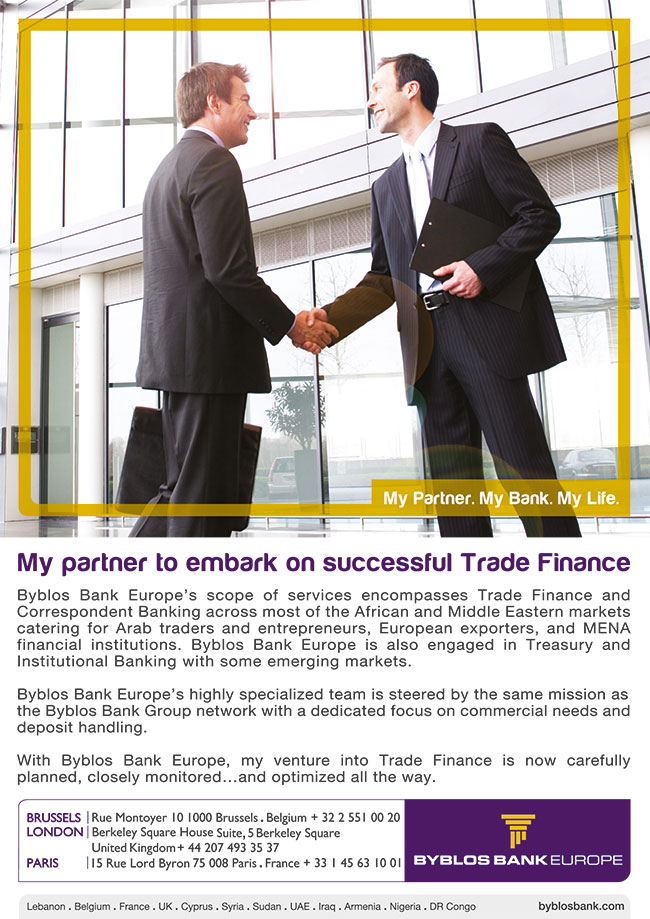
Upcoming Events
5th Arab-Belgian Diplomatic Business Workshop
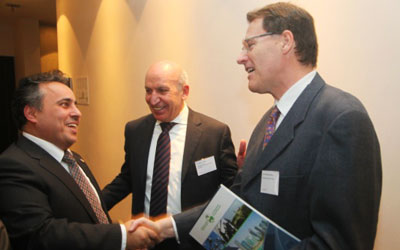
5 February 2014
Brussels
On the 5th of February, the ABLCC is organizing the 5th edition of the Arab-Belgian Diplomatic Workshop with the support of the Belgian Ministry of Foreign Affairs on the occasion of the Diplomatic Days.
The 2014 edition of this renowned annual event will provide you with the exclusive opportunity to benefit from the insights of Belgian ambassadors in the Arab world, which currently finds itself in a period of far-reaching change, and of the Arab diplomatic corps in Belgium.
H.E. Mr. Gilles Heyvaert, Belgian Ambassador to Egypt, H.E. Mr. Patrick De Beyter, Belgian Ambassador to Tunisia, H.E. Mr. Frédéric Meurice, Belgian Ambassador to Algeria, H.E. Mr. Andy Detaille, Belgian Ambassador to Libya and H.E. Mr. Marc Vinck, Belgian Ambassador to Saudi Arabia will deliver a presentation on their country of accreditation.
If you wish to participate, please fill out the registration form.
Date: 5 February 2014
Time: 6-8 PM
Venue: Cercle Royal Gaulois, Rue de la Loi 5, 1000 Brussels
Lunch Conference with H.E. Mounir Fakhry Abdel Nour, Egyptian minister of Trade and Industry

19 February 2014
Brussels
Although currently enveloped in a period of political change, Egypt remains on the radar as an interesting partner in international trade and investment. It does not only come in third directly after Saudi Arabia and the Emirates in the ranking of destinations that capture most interest of Chinese investors; according to forecasts by a London-based economic consultancy it will also be among the world's 30 largest economies by 2028. Reasons enough to sign up for the lunch conference with H.E. Mounir Fakhry Abdel Nour, Egyptian minister of Trade and Industry organized on 19 February by the Chamber.
ABLCC contacts will receive an invitation for the lunch conference by e-mail. Details will be published in due time on the ABLCC website www.ablcc.org.
Briefing Seminar on the Economic Mission to Saudi Arabia and Oman
27 February 2014
Brussels
Are you participating in the 2014 Economic Mission to Saudi Arabia and Oman? A wise decision! On the 27th of February, the ABLCC is organizing a briefing seminar for participants to the mission in collaboration with the Belgian Foreign Trade Agency and BNP Paribas Fortis. You can already warm up by reading the interview with Mr. Marc Bogaerts, Director General of the Belgian Foreign Trade Agency.
ABLCC contacts will receive an invitations by e-mail. Details will be published in due time on the ABLCC website www.ablcc.org.
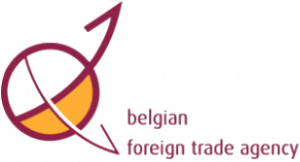 |
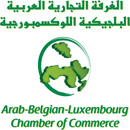 |
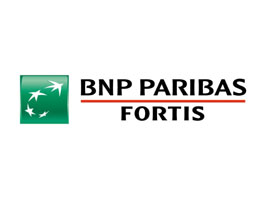 |
2nd International Forum for Islamic Banks and Financial Institutions
03 April 2014
Luxembourg
Luxembourg’s position as the leading centre for internationally distributed investment funds, combined with the financial centre’s expertise in Islamic finance, make the country an ideal location for the creation and administration of Sharia-compliant investment vehicles and cross-border distribution of investment products.
Today, there are 41 Sharia compliant funds domiciled in Luxembourg with €4 billion assets under management and the Luxembourg Stock Exchange is a leading exchange for the listing of Sukuk. Come discover the intriguing world of Islamic banking at the 2nd International Forum for Islamic Banks and Financial Institutions organized by CIBAFI Bahrain and the ABLCC in Europe’s global hub for Islamic financing.
ABLCC contacts will receive an invitations by e-mail. Details will be published in due time on the ABLCC website www.ablcc.org.
 |
 |
Belgian Economic Mission to Saudi Arabia and Oman
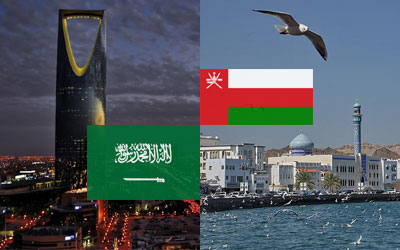
14-21 March 2014
Saudi Arabia and Oman
A multi-sectoral economic mission to the Kingdom of Saudi Arabia and the Sultanate of Oman will take place from 14 until 21 March 2014 under the chairmanship of HRH Princess Astrid, Honorary Chairman of the Belgian Foreign Trade Agency (ABH-ACE). The mission is organized by the ABH-ACE in close cooperation with the regional foreign trade agencies AWEX, BIE and FIT.
The Belgian delegation will be visiting Riyadh, Jeddah, Muscat and Duqm. Taking into account the specific characteristics of the local market, a particular focus will be placed on the following sectors:
- Infrastructure and transport
- Logistics and cold chain
- Cleantech, renewable energy and environmental technologies
- Health care (medical, pharmaceutical and biotechnology)
- Information and communication technologies
- Services (legal, banking and insurance)
- Luxury products, including gastronomy
Companies active in other sectors than the above are of course equally welcome to participate.
The participants will enjoy the support of the Economic and Trade Attachés based in the Kingdom of Saudi Arabia (also covering the Sultanate of Oman), who will be in charge of organizing business appointments tailored to the participants’ requests. Every stage of the princely mission will also include networking and matchmaking activities.
Registration: http://www.flexmail.eu/f-a22e536b367d6812
Deadline: 24 January 2014
More information:www.abh-ace.be
Contact: Mr. Wouter Decoster, Junior Economic Mission Coordinator
T: +32 2 206 35 74 – E: This email address is being protected from spambots. You need JavaScript enabled to view it.
 |
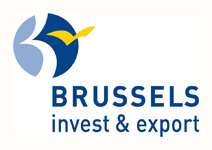 |
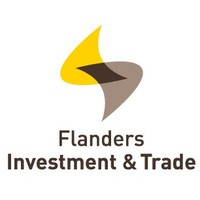 |
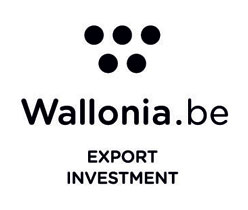 |
Fairs, Conferences and Exhibitions
Arab Health
Dubai – 27-30 January 2014
Flanders Investment and Trade neemt deel met een groepsstand.
Meer informatie: http://www.flanderstrade.be/acties/2014/01/27/Groepsstand-Arab-Health-Dubai?opendocument
Pour de plus amples informations sur le stand collectif de BIE, visitez: http://www.invest-export.irisnet.be/web/export/-/emirats-arabes-unis-arab-health-27-30-janvier-2014
More information: www.arabhealthonline.com/en
Green Building Expo
Doha – 28-30 January 2014
More information: www.greenbuildingexpo.org
31st Khartoum International Trade Fair
Khartoum – 30 January-6 February 2013
More information: www.ifksudan.com/english , Contact: This email address is being protected from spambots. You need JavaScript enabled to view it.
Saudi Plastics and Petrochem
Riyadh- 17-20 February 2014
More information: www.saudippp.com
International conference on seafood safety, quality and traceability
Muscat – 3-5 March 2014
More information: This email address is being protected from spambots. You need JavaScript enabled to view it.
Agriculture and Automatisation Fair
Baghdad – 14-21 March 2013-10-31
Contact: This email address is being protected from spambots. You need JavaScript enabled to view it. , This email address is being protected from spambots. You need JavaScript enabled to view it.
Arab Oil & Gas 2014
Dubai – 17-19 March 2014
More information: www.ogsonline.com
Sharjah Chamber of Commerce and Industry World Trade Week
Sharjah - 19-28 March 2014
Contact: This email address is being protected from spambots. You need JavaScript enabled to view it.
Project Iraq
Baghdad- 10 -13 March 2014
More information:
Real Estate and Investment Iraq
Baghdad- 10 13 March 2014
More information:
Energy Iraq
Baghdad- 10 13 March 2014
More information:
Riyadh International Exhibition
Riyadh – May 2014
More information: www.eyeofriyadh.com/extlnk/lnkframe.htm?http%3A//www.riyadhinterexpo.com/
Qatar Stone Tech
Doha – 12-14 May 2014
More information: www.qatarstone-tech.com
Iraq Medicare
Erbil- 26- 28 May 2014
More information:
Erbil International Fair
Erbil – 22 -25 September 2014
More information:
OGE Iraq
Baghdad- 15-16 October 2014
More information:
Project Iraq
Erbil- 21-24 October 2014
More information:
Energy Iraq
Erbil- 21-24 October 2014
More information:
Iraq Agro-Food
Erbil- 17-20 November 2014
More information:
Tourism & Hospitality
Erbil- 17-20 November 2014
More information:
Iraq HealthCare
Baghdad- 01- 03 December 2014
More information:
Baghdad Motor Show
Baghdad – 4-7 December 2014
More information:
![]()
BUSINESS PROPOSALS
 The ABLCC now sends tenders and business proposals directly to ABLCC members via e-mail.
The ABLCC now sends tenders and business proposals directly to ABLCC members via e-mail.
Would you also like to benefit from these and other ABLCC services? You can. Become a member and enjoy the full range of advantages offered by the ABLCC.
Brochure and subscription form
Brochure en inschrijvingsformulier
Brochure et demande d’adhésion
مزايا الانضمام لعضوية الغرفة و طلـب انتســـاب الغرفة
You are welcome to return the completed form to us by e-mail (This email address is being protected from spambots. You need JavaScript enabled to view it. ) or fax (32 2 347 57 64).
يرجى إعادة الاستمارة لنا بعد تعبئتها بشكل كامل بالبريد الالكتروني (This email address is being protected from spambots. You need JavaScript enabled to view it. )
أو بالفاكس (32 2 347 57 64)
